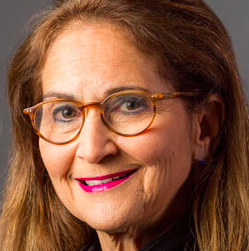
EMPLOYEE HEALTH INSURANCE BILLS ARE PAST DUE
The owner of the Alaska Dispatch News borrowed $13 million from Northrim Bank at the outset of her adventure in Alaska newspaper publishing in 2014, according to documents filed in bankruptcy court today.
The final sale price to the Binkley Company is $1 million, and that would just go to keeping the lights on at the newspaper. There is not expected to be much if anything left over for unsecured creditors.
The $13 million Alice Rogoff borrowed was a personal loan, and she contributed it as capital to AK Publishing LLC to buy the Anchorage Daily News from McClatchy. She also brought $6 million of her own money to the table in that fateful March, 2014 deal.
“From the time of the purchase, I was willing to operate ADN at an operating loss to both maintain robust journalism in Alaska, and as an investment in the future of the company. This included purchasing a new primary printing press, new print and online publishing systems, and development of new revenue streams,” Rogoff wrote to the court. “At the same time, ADN’s overall revenue from print declined, reflecting national trends in print readership and print advertising, and amplified by Alaska’s current economic recession.”
Her statement to the court shows the ADN had 2.6 million unique viewers of its online platforms in June, and she claims 4,000 digital-only subscribers — people who pay to access the paper in full online. Her newsprint circulation is not given, but may be as high as 25,000 daily. Sundays are 30,000.
She pressed her case that keeping the newspaper alive is essential for the entire state.
Without a sale, Rogoff wrote, “there is little choice but to cease ADN’s operations to the detriment of its subscribers, employees, advertisers, and the State of Alaska as a whole…”
“But the company requires major restructuring,” she wrote, and the paper is losing $125,000 per week. The Dispatch’s print circulation is losing between 7-10 percent each year, as most newspapers are doing in this era.
Rogoff said she could not find a suitable building to move her presses from what became GCI’s building on Northway Drive. After a search and “due diligence,” she entered into a long-term lease with Arctic Partners for the 59th and Arctic warehouse.
[Read: Deathwatch for the Dispatch?]
The retrofitting of the warehouse hit major snags and became untenable for Rogoff. The project was shelved in March and is now in litigation.
“Since the purchase of ADN, I have personally financed ADN’s operations, cash shortfalls, and capital expenditures. In addition to the Northrim Bank loan, I guaranteed the (i)Arctic Road lease and (ii) certain removal costs related to the GCI Lease. However, personal financing the future operations of ADN in addition to the current personal guarantees is no longer feasible.”
Rogoff said that the ADN employes 212 people: 58 in production, 52 in newsroom, 31 in advertising, 49 in circulation, 9 in the publisher’s office, 7 in finance, and 6 in information technology/web.
The health insurance policies for her employees are past due by $158,361.27, and payroll was made and covered through Aug. 6. Premera Blue Cross has agreed to not cancel the health insurance of employees until Sept. 15, giving the newspaper some time to make the payments.
But in the meantime, employee health claims will not be paid; only pharmaceutical bills will be covered.
Other insurance policies are also past due, as is workers compensation.
PIERCING THE CORPORATE VEIL
Rogoff wrote that “all payments I receive from a Marital Settlement Agreement with my husband, David Rubenstein, were directed and paid into my account at Northrim Bank.”
The bank received partial payment of its loan, which was extended on two occasions, the last being in March. The loan is due on September 30, 2017, in the amount of $10,165,000 plus interest of at least $81,459, and attorneys fees of $11,597.
In March, Rogoff made an additional security pledge to the bank, including security interests in the Dispatch, pledges from her marital settlement, and her personal investment accounts at Wells Fargo Bank.
In the filing, Rogoff describes how the newspaper overstayed the lease at GCI, ran into problems with the new leased space, and ended up with lawsuits and eviction orders.
[Read: Dispatch gets eviction notice] [Dispatch files Chapter 11]
“Finally, GCI is seeking to ‘pierce the corporate veil’ and hold me personally liable for the companies’ debts and obligations,” she wrote.
“Piercing the corporate veil” is a legal decision to treat the dealings of a corporation and its shareholders as the same, rather than treating the corporation as a separate legal entity. In these situations, the piercing of the veil allows creditors to go after personal assets.
Rogoff was stating that GCI is trying to make her personally liable for over $1 million.
The Binkley Company, LLC is attempting to buy the newspaper and has agreed to loan the newspaper up to $1 million. Rogoff said the first order of business with any installments from the Binkley Company would be to pay off the past due Premera Blue Cross health insurance premiums.
According to the settlement being proposed, very little would be left over are the sale of the paper to make whole the multitude of creditors; or as Rogoff puts it, there would be “little or no cash proceeds paid to the bankruptcy estate.”